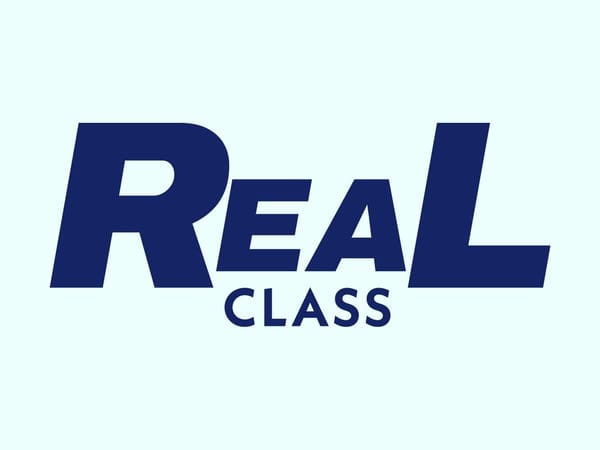The Renegade or a Confused Spirit
Albert Camus. Albert Vete. Albert Kelly. Thierry Al(i)bert. All names synonymous with rugby league greatness.

Most Monday afternoons can be considered a time of doomscrolling for rugby league fans who are terrified to learn which daft decisions have been made by the RFL Match Review Panel each week, but something else umped out at me that made me sigh, roll my eyes, and almost close Twitter. That’s enough internet for today, Jonny. The piece, perched at the top of my newsfeed, highlighted how French clubs’ places in the British game could be in jeopardy given growing concerns at their financial viability.
I looked at the article and sat with the sense of RL déjà-vu, wherein we have another day and another discussion around the logistics of rugby league and the challenges to the very fundamental structure propping up the game.
Just as I was about to close the app, however, the tweet immediately below the story caught my eye. Social media timelines throw up some odd bedfellows, but just under the article, and above an advert for TEMU, was a quote from the philosopher and author Albert Camus. Albert Vete. Albert Kelly. Thierry Al(i)bert. Yes, all names synonymous with rugby league greatness. Well, maybe. Anyway. Camus probably doesn’t spring to mind in most rugby league circles, I guess, which is a shame, because he probably sums up the state of the sport, and its seemingly endless existential dilemma in one simple phrase:
“Man is the only creature who refuses to be who he is.”
Bear with me. This astute existentialist observation, literally the next tweet down from existential rugby league dread, addresses the way that human beings set ourselves apart from wild animals with our ability to think, innovate, and reinvent ourselves. It’s both a blessing and a curse. While a tiger just eats and hunts, a rhino grazes, and a leopard tries to look like one of Derek Beaumont’s suits, humans are the anomaly in the way we’re both blessed and cursed with a level of self-awareness that makes us over-think, over-complicate and run away from our own instincts. We try and show off, care a little too much about our self image, push boundaries, and try to ‘better’ ourselves.
All this is well and good, until you look at the trouble it causes. Worry, depression, stress, anxiety. How often have you looked over at a dog, calmly sleeping by the fire, and thought, ‘It’d be bliss to not have anything to care about.’ Well, for me, the life of a rugby league fan is the equivalent of being an over-thinking, neurotic human, watching enviously as football (our dog in front of a fire) rests up blissfully, not a care in the world, while we fester and stress about what colour we should paint the kitchen as if it’s some life or death decision, when in actuality, just like whether we should have eight or ten interchanges in a game, it doesn’t really matter in the grand scheme of things.
Rugby league, its spectators, the governing body, and all associated with the game spend far more time talking about the sport itself, trying to justify its own existence, than maybe any other. It’s certainly the case in the UK anyway, while we enviously look over at the NRL with all its lucrative deals and endless talent.
If you go to the pub and listen to anyone discussing a football game or talking about cricket, the conversation is predominantly around events on the pitch — a decision, a goal, a new signing. Talk to a rugby league fan, and the conversation soon turns to a discussion around whether we need to bring a Cumbrian team into Super League, or how many teams should be in the competition.
These are broad strokes, and I’m being slightly reductive, but it feels like rugby league’s biggest problem is actually with itself. I often hear rugby league fans talking up our game to friends, family, media outlets, saying how it is “the best sport in the world”. I absolutely believe it, but I often wonder, who are we trying to convince — others, or ourselves?
If it’s so great, why do we want to overhaul everything so often? Football fans don’t have to do this as the sport does the talking, and it always leaves me with a feeling that we’ve got some point to prove. Where does that stem from? We all know we’re involved in a sport with a unique history and heritage, borne of rebellion back in 1895, and perhaps this is where that comes from — a constant sense of having to justify itself to convince others of its worth and otherness from the fifteen-man code. Not many sports can point to the exact room where it was founded, but rugby league can. It’s a game with working-class roots that can never and will never be erased in the heartland towns that are the lifeblood of the sport.
Maybe that’s where the lack of self-assurance stems from. Maybe our nervousness and twitchy, reactive attitude are a deep delve into our own psyche around our right to exist that more affluent sports don’t have to worry about, looking forward full of middle-class confidence.
If we truly believed in ourselves, I don’t think we’d see the level of tweaking and have more faith in our own ‘product’. Not a season goes by when we don’t have a new rule change on the pitch or restructuring off it. We all have friends who don’t know anything about rugby league, and I’m sure we’ve all tried to explain elements of it to them over the years with little or no success. I’ve often found myself a little embarrassed trying to explain the chameleon-like nature of the sport at times. “Didn’t you get relegated last year?” “Ah yeah, they don’t do that anymore.”
I’ll never forget trying to explain the Super 8s to a very sports-literate football fan in Middlesbrough. His eyes glazed over when I tried to explain how a team that finished ninth in a twelve-team league was a candidate for relegation. When I mentioned how a Canadian team was joining a European Super League a year later his head nearly blew up. Once again, I don’t have the answers to what the best structure is, but I do know one thing: if you ask a rugby league fan what their most memorable moment following the sport is, they won’t say that it was the day Ralph Rimmer stood at a podium talking about a league restructure. They’ll remember moments – winning tries, big hits, last minute drop goals. I won’t be telling my grandchildren about the time I watched Nigel Wood droning on about the RFL’s turnover, or a statement that Eamonn McManus dribbled in anger. So much of social media’s buzz is around what rugby league should be, instead of — as Camus said — what it actually is.
Rugby league is adaptable. It was forged in tough times, and I think the sport does know how to roll its sleeves up and survive because of the place it has come from and a pragmatic side that we only too infrequently get glimpses of. But we just don’t want it purely to survive, it is a sport that deserves to thrive.
To do that, I think rugby league needs to take an existential look in the mirror, as Camus does, and remember what it actually is and not over-think itself out of existence. For the record, Albert Camus was quite a cool bloke by all accounts and I reckon coming from a sporting background as a goalkeeper he’d have quite enjoyed watching rugby league, given the chance.
And why wouldn’t he? It’s a high-octane, adrenaline-inducing collision sport that, when played well, is the best in the world. Rugby league is at its best when it is just being rugby league. The rest of it is a distraction. We just need to accept that. ⬧





